Early Access: Secure Desktop Access with Beyond Identity Windows Desktop Login and YubiKeys
Consider the daily ritual of logging into a Windows desktop. It seems mundane, yet it's a focal point where organizational friction, security vulnerabilities, and compliance pressures collide. The password persists, often not because it's ideal, but because the alternatives seemed too costly or complex. What happens, though, when the ground shifts, i.e. when regulations tighten, or phishing becomes an unavoidable tax on operations?
This brings us to a significant development from Beyond Identity: enabling YubiKeys, using the PIV standard, for Windows Desktop Login (WDL).
What is it?
This enhancement to our Windows Desktop Login (WDL) product allows secure desktop login and roaming authentication without relying on mobile devices. Instead, it leverages hardware-based credentials, specifically YubiKeys using the PIV standard.
We've enabled these hardware tokens to function as roaming credentials. This means users can insert their YubiKey into any authorized Windows workstation within the organization, prove their identity with a PIN, and log into the machine securely.
What are key use cases this unlocks?
The real story here isn't just enhanced security. It's about overcoming specific obstacles and finding smarter ways to operate:
- Working Around the "No Phones Allowed" Rule: Many critical environments, such as secure facilities, manufacturing lines, government operations – simply do not permit personal mobile devices. Others face pushback from employees asked to install corporate apps on personal phones. This YubiKey method offers a robust alternative, allowing strong authentication without forcing a difficult or impossible mobile dependency. It enables organizations to function securely under their actual operational conditions.
- Navigating the Compliance Maze: Mandates like CJIS, HIPAA, and PCI DSS require stringent, auditable proof of identity. Simply hoping for the best isn't a strategy when non-compliance carries heavy fines or operational shutdowns. Using a YubiKey (physical token) plus a PIN satisfies the core multi-factor requirements ("Have" + "Know") clearly and defensibly. Employing FIPS-validated cryptography signals a commitment to recognized (and demanding) security standards, simplifying conversations with auditors.
- Untangling the Shared Workstation Knot: Think about the inherent complexities of shared PCs in hospitals, police dispatch centers, or retail settings. Managing logins often involves clunky processes, security risks from shared credentials, or delays. The YubiKey model streamlines this dramatically: identity travels with the user. Plug in, enter PIN, get to work. This reduces the hidden frictions and vulnerabilities of shared computing.
- Making Life Harder for Phishers: Phishing thrives on tricking users into revealing secrets like passwords or OTP codes. Hardware-based login changes the game. The essential cryptographic key never leaves the YubiKey. There's no secret for a user to accidentally divulge or an attacker to intercept easily. This fundamentally increases the difficulty and cost for those attempting credential theft.
- The Underrated Value of Working Offline: Consistent network access is a luxury, not a guarantee, especially for field agents or during emergencies. The ability to log in locally with the YubiKey and PIN ensures operational continuity. How valuable is it for critical personnel to access their tools even when the network is down? This resilience is often overlooked until it's desperately needed.
- Clear Lines of Responsibility: Tying a unique, hardware-bound credential to each user strengthens accountability. The platform's detailed logs create an unambiguous record of who accessed what, when, and how, essential clues for investigations and meeting audit requirements.
Where Does Desktop Login Go Next? (Expanding the Toolkit)
This YubiKey/PIV capability is a powerful tool for a specific set of needs. But the world of identity is constantly evolving. We are already expanding the WDL options to provide more choices:
- QR Code Roaming: For scenarios where mobile phones are available and preferred, scanning a QR code offers a different authentication path – trading the physical hardware requirement for mobile convenience.
- Leveraging Built-In Device Security: Utilizing the TPM and biometrics (like Windows Hello) or a secure PIN on an assigned computer offers another approach, optimizing for users who primarily use one machine.
The aim isn't a one-size-fits-all answer, but rather a growing set of tools. This allows organizations to select the authentication methods that make the most sense given their unique mix of users, devices, risks, and resources.
The Bottom Line
Securing desktop login is more than just checking a box. It's about managing real-world risks, satisfying external demands, and enabling work to get done effectively despite constraints. Adding YubiKey PIV support to WDL offers a potent, phishing-resistant solution particularly suited for challenging environments. It represents a meaningful expansion of the options available for organizations seeking a better, more secure way to handle that first critical authentication step.
Curious how this applies to your situation?
Consider the daily ritual of logging into a Windows desktop. It seems mundane, yet it's a focal point where organizational friction, security vulnerabilities, and compliance pressures collide. The password persists, often not because it's ideal, but because the alternatives seemed too costly or complex. What happens, though, when the ground shifts, i.e. when regulations tighten, or phishing becomes an unavoidable tax on operations?
This brings us to a significant development from Beyond Identity: enabling YubiKeys, using the PIV standard, for Windows Desktop Login (WDL).
What is it?
This enhancement to our Windows Desktop Login (WDL) product allows secure desktop login and roaming authentication without relying on mobile devices. Instead, it leverages hardware-based credentials, specifically YubiKeys using the PIV standard.
We've enabled these hardware tokens to function as roaming credentials. This means users can insert their YubiKey into any authorized Windows workstation within the organization, prove their identity with a PIN, and log into the machine securely.
What are key use cases this unlocks?
The real story here isn't just enhanced security. It's about overcoming specific obstacles and finding smarter ways to operate:
- Working Around the "No Phones Allowed" Rule: Many critical environments, such as secure facilities, manufacturing lines, government operations – simply do not permit personal mobile devices. Others face pushback from employees asked to install corporate apps on personal phones. This YubiKey method offers a robust alternative, allowing strong authentication without forcing a difficult or impossible mobile dependency. It enables organizations to function securely under their actual operational conditions.
- Navigating the Compliance Maze: Mandates like CJIS, HIPAA, and PCI DSS require stringent, auditable proof of identity. Simply hoping for the best isn't a strategy when non-compliance carries heavy fines or operational shutdowns. Using a YubiKey (physical token) plus a PIN satisfies the core multi-factor requirements ("Have" + "Know") clearly and defensibly. Employing FIPS-validated cryptography signals a commitment to recognized (and demanding) security standards, simplifying conversations with auditors.
- Untangling the Shared Workstation Knot: Think about the inherent complexities of shared PCs in hospitals, police dispatch centers, or retail settings. Managing logins often involves clunky processes, security risks from shared credentials, or delays. The YubiKey model streamlines this dramatically: identity travels with the user. Plug in, enter PIN, get to work. This reduces the hidden frictions and vulnerabilities of shared computing.
- Making Life Harder for Phishers: Phishing thrives on tricking users into revealing secrets like passwords or OTP codes. Hardware-based login changes the game. The essential cryptographic key never leaves the YubiKey. There's no secret for a user to accidentally divulge or an attacker to intercept easily. This fundamentally increases the difficulty and cost for those attempting credential theft.
- The Underrated Value of Working Offline: Consistent network access is a luxury, not a guarantee, especially for field agents or during emergencies. The ability to log in locally with the YubiKey and PIN ensures operational continuity. How valuable is it for critical personnel to access their tools even when the network is down? This resilience is often overlooked until it's desperately needed.
- Clear Lines of Responsibility: Tying a unique, hardware-bound credential to each user strengthens accountability. The platform's detailed logs create an unambiguous record of who accessed what, when, and how, essential clues for investigations and meeting audit requirements.
Where Does Desktop Login Go Next? (Expanding the Toolkit)
This YubiKey/PIV capability is a powerful tool for a specific set of needs. But the world of identity is constantly evolving. We are already expanding the WDL options to provide more choices:
- QR Code Roaming: For scenarios where mobile phones are available and preferred, scanning a QR code offers a different authentication path – trading the physical hardware requirement for mobile convenience.
- Leveraging Built-In Device Security: Utilizing the TPM and biometrics (like Windows Hello) or a secure PIN on an assigned computer offers another approach, optimizing for users who primarily use one machine.
The aim isn't a one-size-fits-all answer, but rather a growing set of tools. This allows organizations to select the authentication methods that make the most sense given their unique mix of users, devices, risks, and resources.
The Bottom Line
Securing desktop login is more than just checking a box. It's about managing real-world risks, satisfying external demands, and enabling work to get done effectively despite constraints. Adding YubiKey PIV support to WDL offers a potent, phishing-resistant solution particularly suited for challenging environments. It represents a meaningful expansion of the options available for organizations seeking a better, more secure way to handle that first critical authentication step.
Curious how this applies to your situation?
Consider the daily ritual of logging into a Windows desktop. It seems mundane, yet it's a focal point where organizational friction, security vulnerabilities, and compliance pressures collide. The password persists, often not because it's ideal, but because the alternatives seemed too costly or complex. What happens, though, when the ground shifts, i.e. when regulations tighten, or phishing becomes an unavoidable tax on operations?
This brings us to a significant development from Beyond Identity: enabling YubiKeys, using the PIV standard, for Windows Desktop Login (WDL).
What is it?
This enhancement to our Windows Desktop Login (WDL) product allows secure desktop login and roaming authentication without relying on mobile devices. Instead, it leverages hardware-based credentials, specifically YubiKeys using the PIV standard.
We've enabled these hardware tokens to function as roaming credentials. This means users can insert their YubiKey into any authorized Windows workstation within the organization, prove their identity with a PIN, and log into the machine securely.
What are key use cases this unlocks?
The real story here isn't just enhanced security. It's about overcoming specific obstacles and finding smarter ways to operate:
- Working Around the "No Phones Allowed" Rule: Many critical environments, such as secure facilities, manufacturing lines, government operations – simply do not permit personal mobile devices. Others face pushback from employees asked to install corporate apps on personal phones. This YubiKey method offers a robust alternative, allowing strong authentication without forcing a difficult or impossible mobile dependency. It enables organizations to function securely under their actual operational conditions.
- Navigating the Compliance Maze: Mandates like CJIS, HIPAA, and PCI DSS require stringent, auditable proof of identity. Simply hoping for the best isn't a strategy when non-compliance carries heavy fines or operational shutdowns. Using a YubiKey (physical token) plus a PIN satisfies the core multi-factor requirements ("Have" + "Know") clearly and defensibly. Employing FIPS-validated cryptography signals a commitment to recognized (and demanding) security standards, simplifying conversations with auditors.
- Untangling the Shared Workstation Knot: Think about the inherent complexities of shared PCs in hospitals, police dispatch centers, or retail settings. Managing logins often involves clunky processes, security risks from shared credentials, or delays. The YubiKey model streamlines this dramatically: identity travels with the user. Plug in, enter PIN, get to work. This reduces the hidden frictions and vulnerabilities of shared computing.
- Making Life Harder for Phishers: Phishing thrives on tricking users into revealing secrets like passwords or OTP codes. Hardware-based login changes the game. The essential cryptographic key never leaves the YubiKey. There's no secret for a user to accidentally divulge or an attacker to intercept easily. This fundamentally increases the difficulty and cost for those attempting credential theft.
- The Underrated Value of Working Offline: Consistent network access is a luxury, not a guarantee, especially for field agents or during emergencies. The ability to log in locally with the YubiKey and PIN ensures operational continuity. How valuable is it for critical personnel to access their tools even when the network is down? This resilience is often overlooked until it's desperately needed.
- Clear Lines of Responsibility: Tying a unique, hardware-bound credential to each user strengthens accountability. The platform's detailed logs create an unambiguous record of who accessed what, when, and how, essential clues for investigations and meeting audit requirements.
Where Does Desktop Login Go Next? (Expanding the Toolkit)
This YubiKey/PIV capability is a powerful tool for a specific set of needs. But the world of identity is constantly evolving. We are already expanding the WDL options to provide more choices:
- QR Code Roaming: For scenarios where mobile phones are available and preferred, scanning a QR code offers a different authentication path – trading the physical hardware requirement for mobile convenience.
- Leveraging Built-In Device Security: Utilizing the TPM and biometrics (like Windows Hello) or a secure PIN on an assigned computer offers another approach, optimizing for users who primarily use one machine.
The aim isn't a one-size-fits-all answer, but rather a growing set of tools. This allows organizations to select the authentication methods that make the most sense given their unique mix of users, devices, risks, and resources.
The Bottom Line
Securing desktop login is more than just checking a box. It's about managing real-world risks, satisfying external demands, and enabling work to get done effectively despite constraints. Adding YubiKey PIV support to WDL offers a potent, phishing-resistant solution particularly suited for challenging environments. It represents a meaningful expansion of the options available for organizations seeking a better, more secure way to handle that first critical authentication step.
Curious how this applies to your situation?

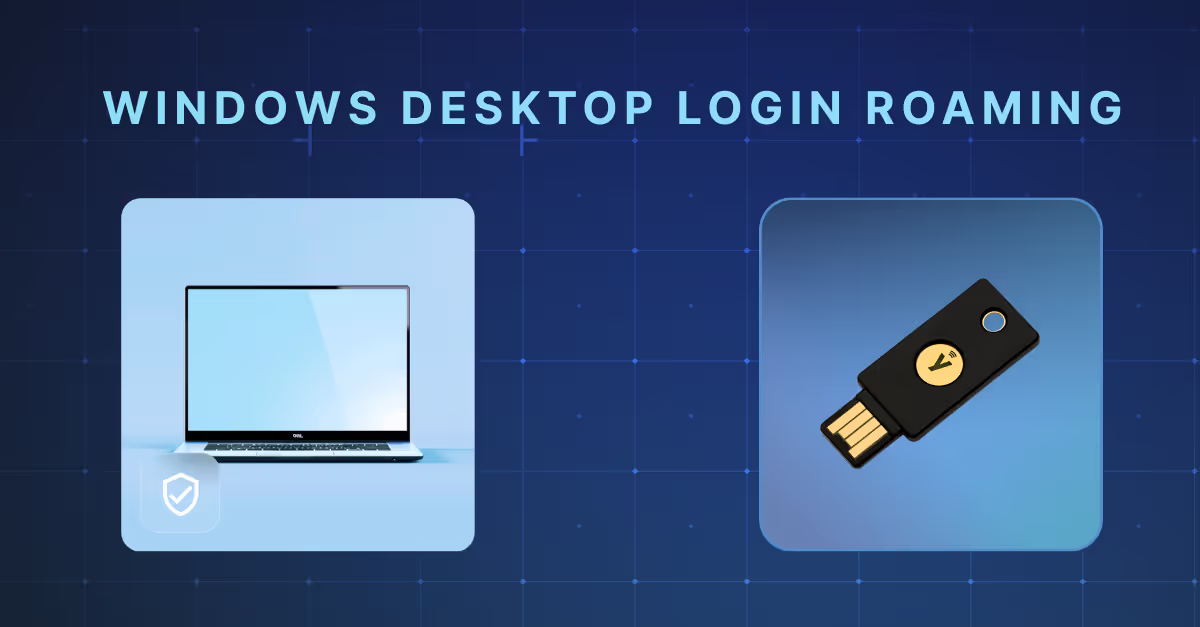






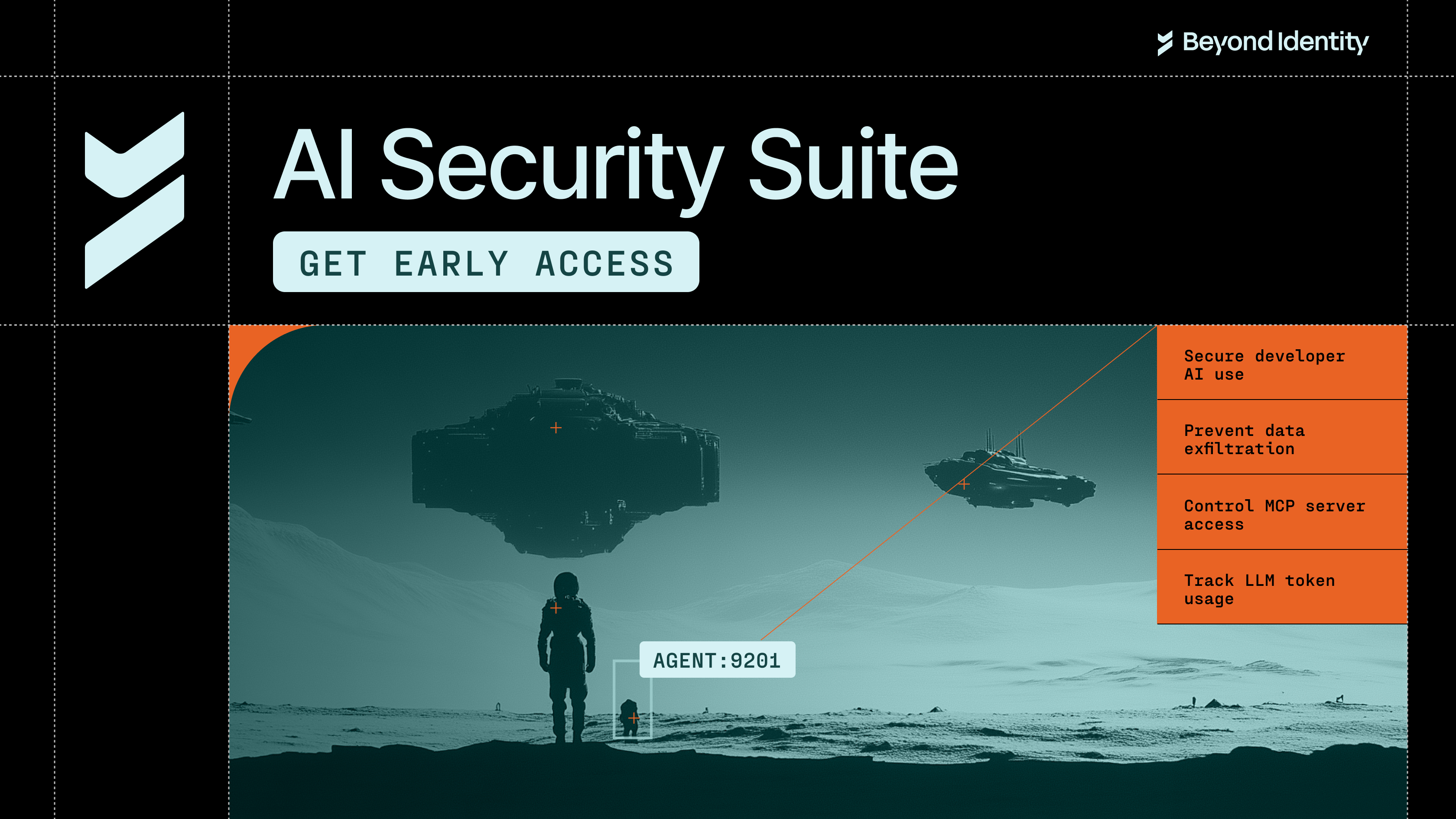
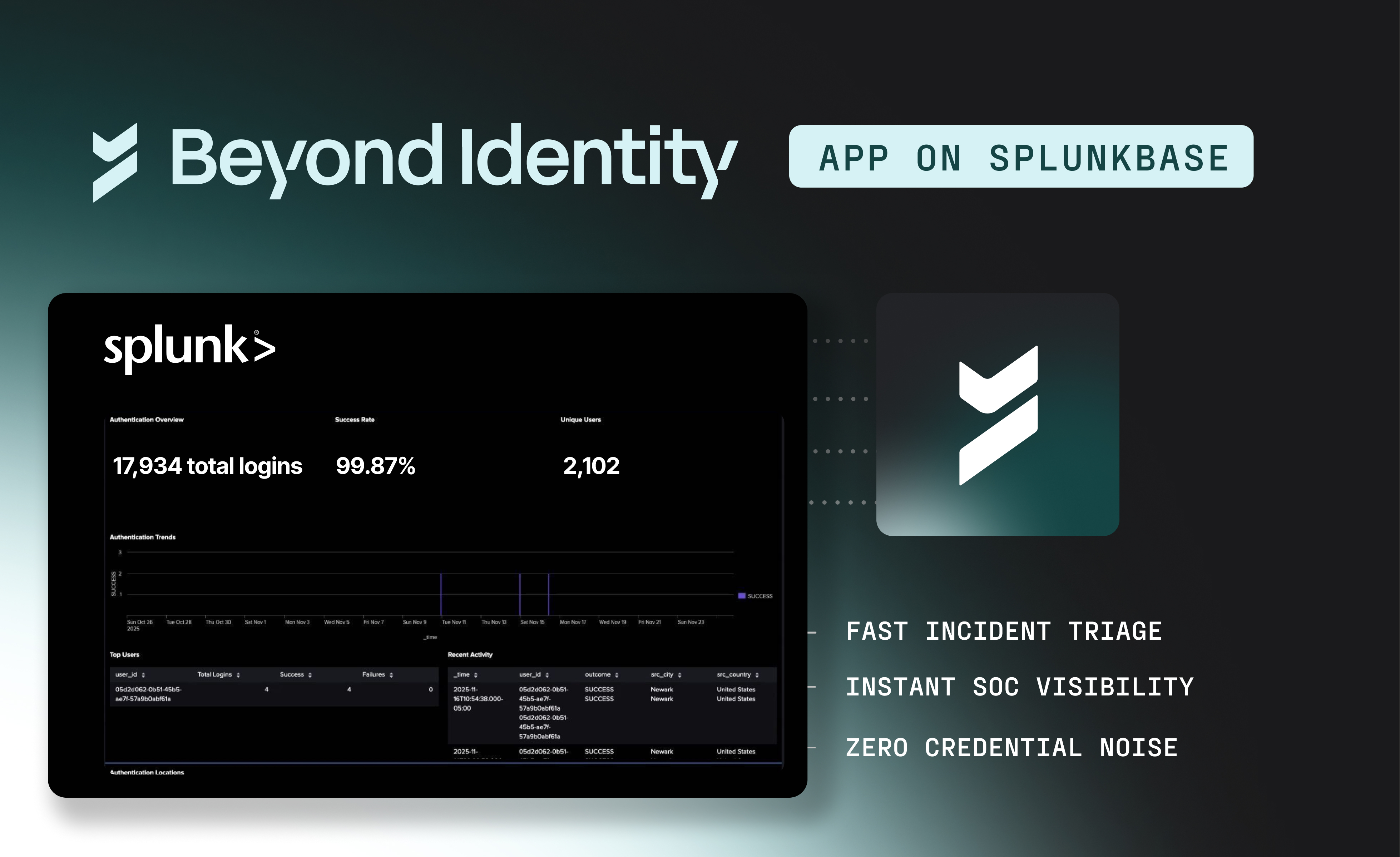
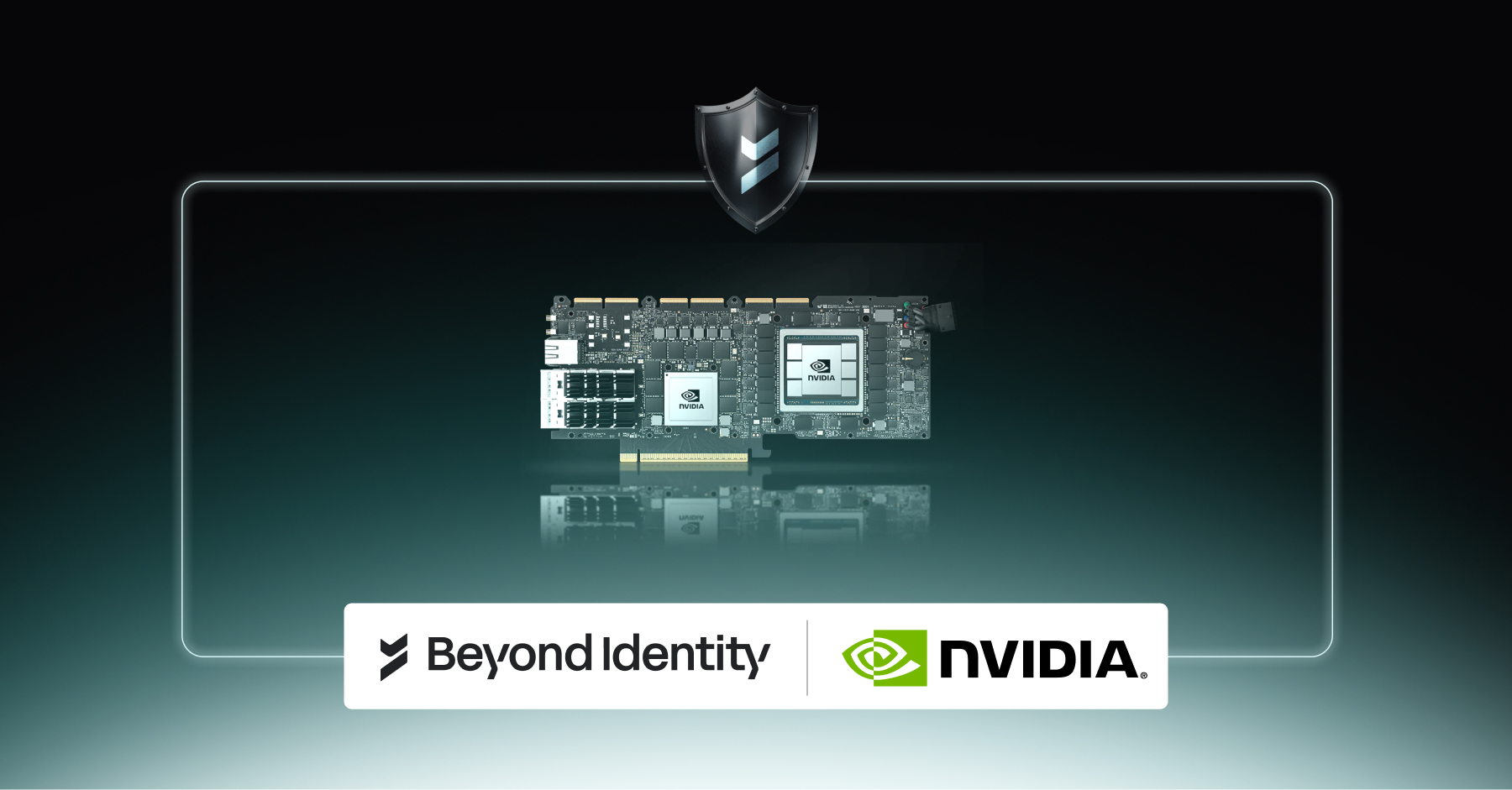


.avif)
.avif)
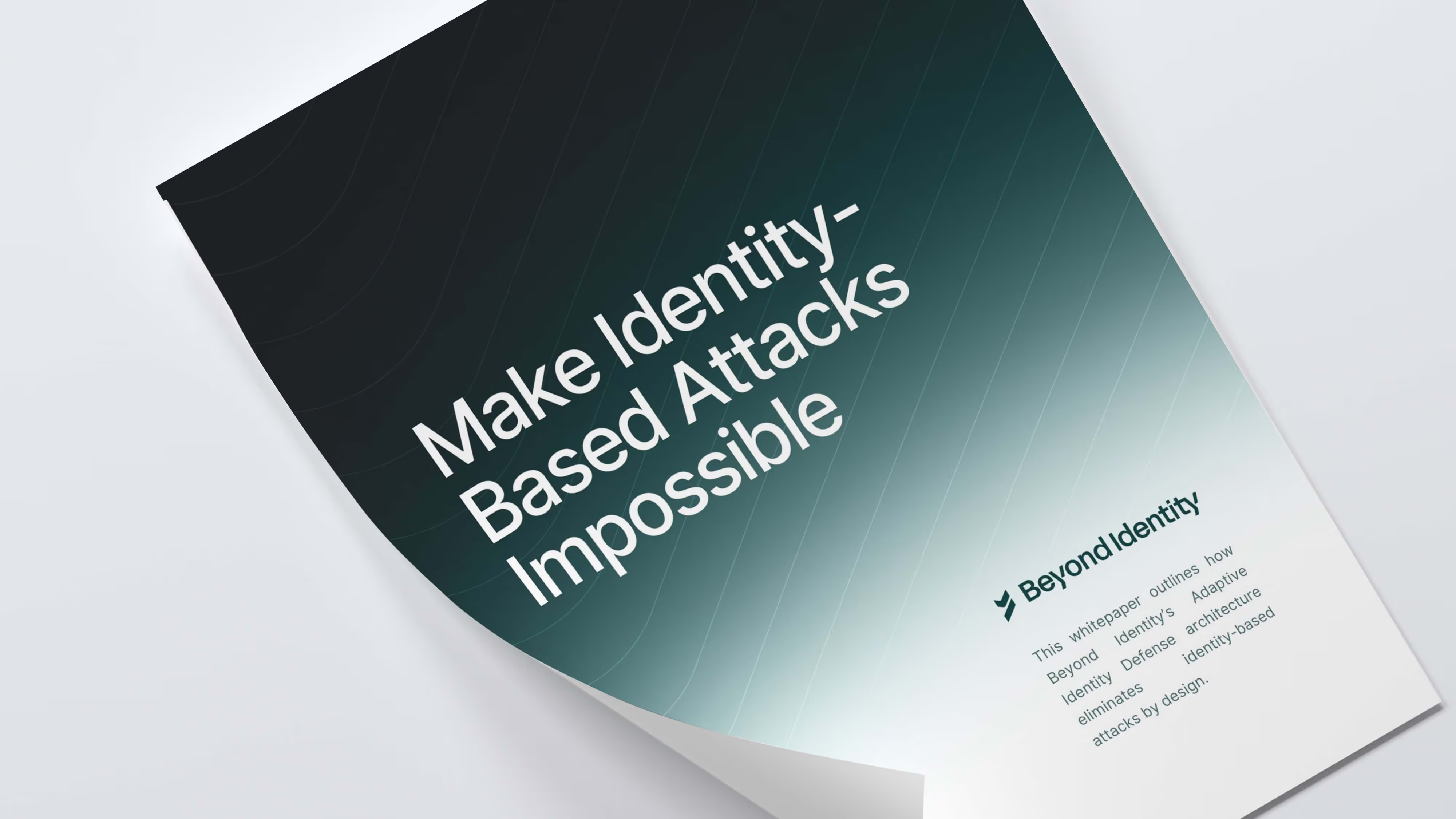
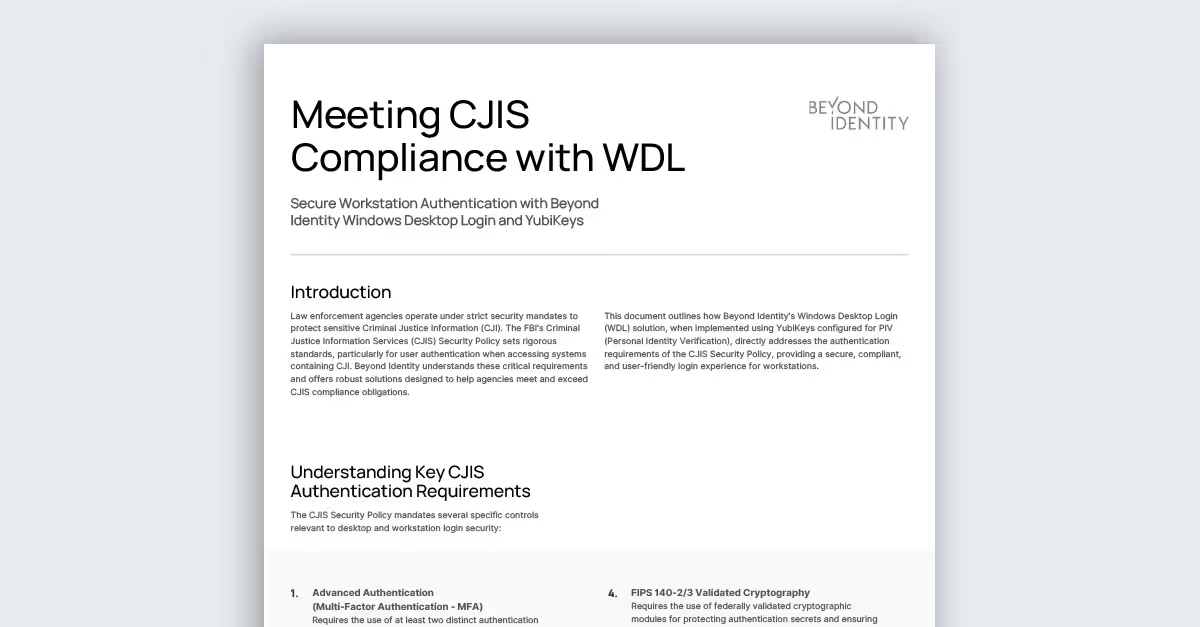
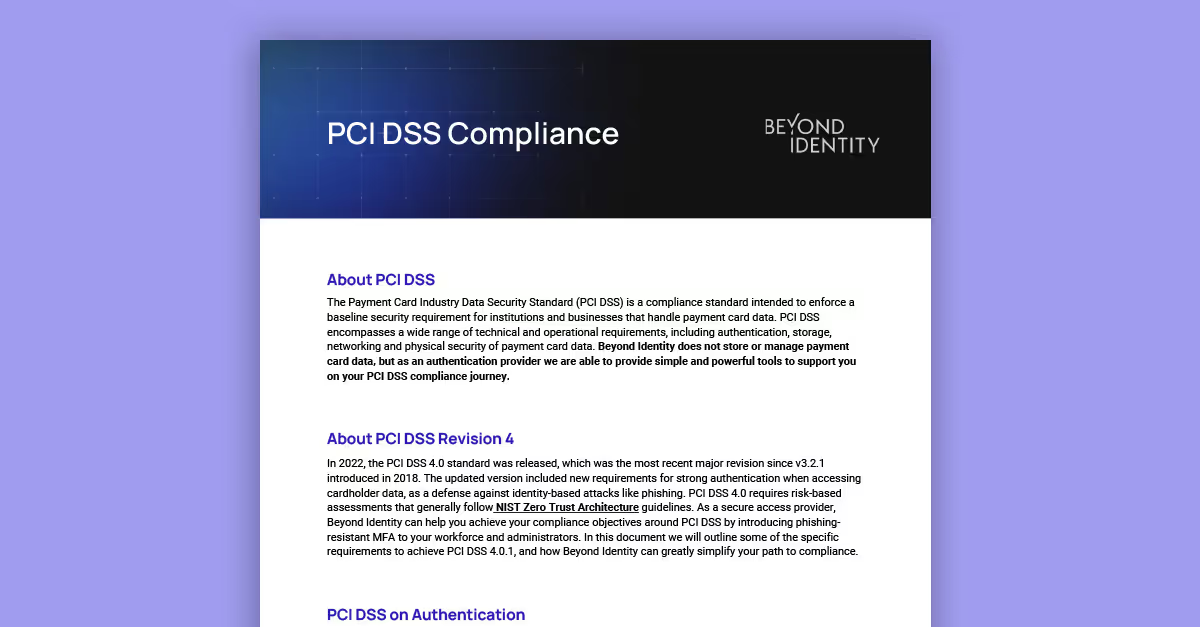
.avif)
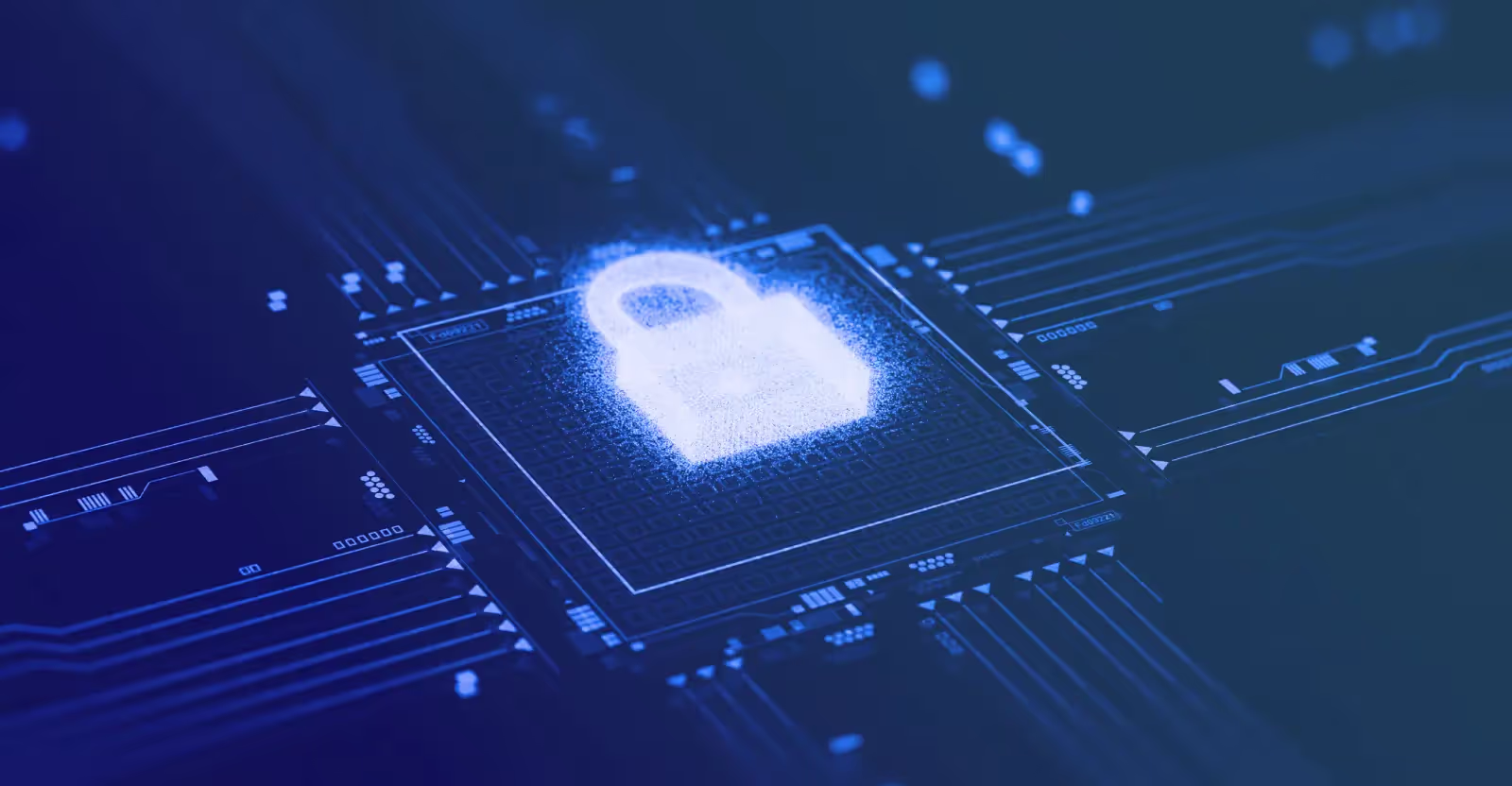
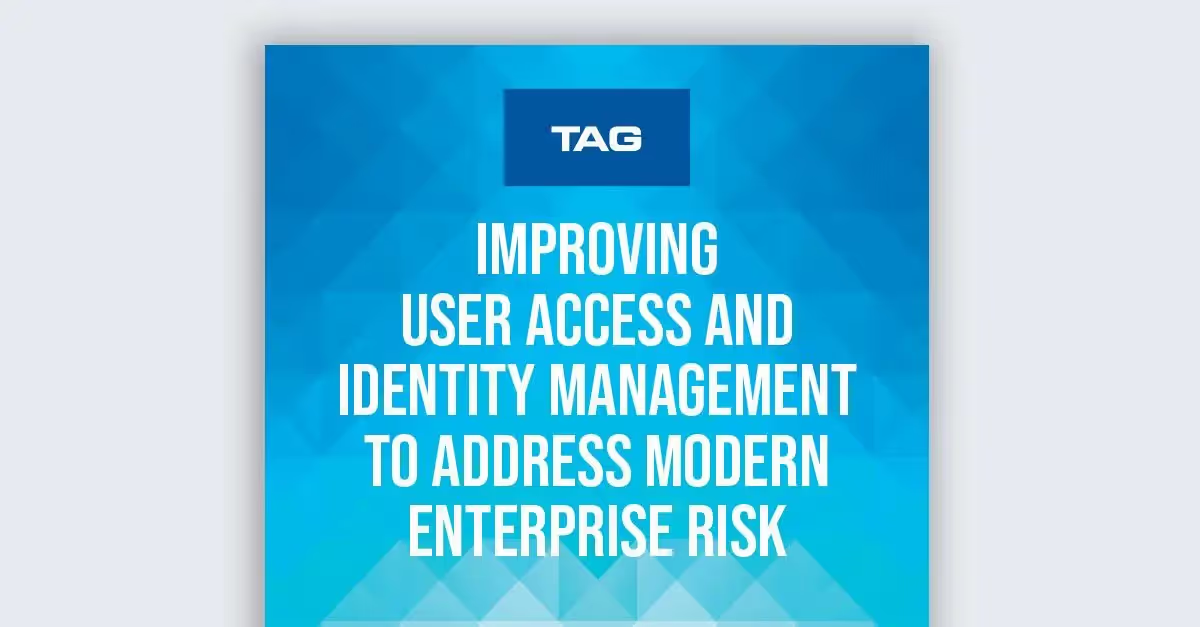

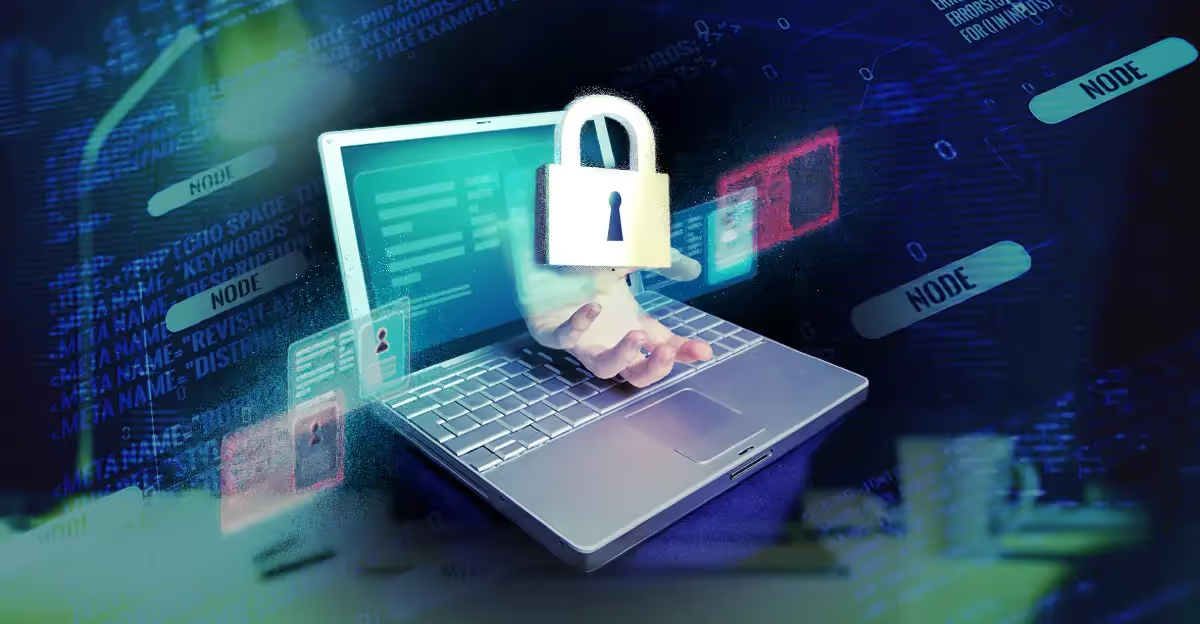


.avif)

